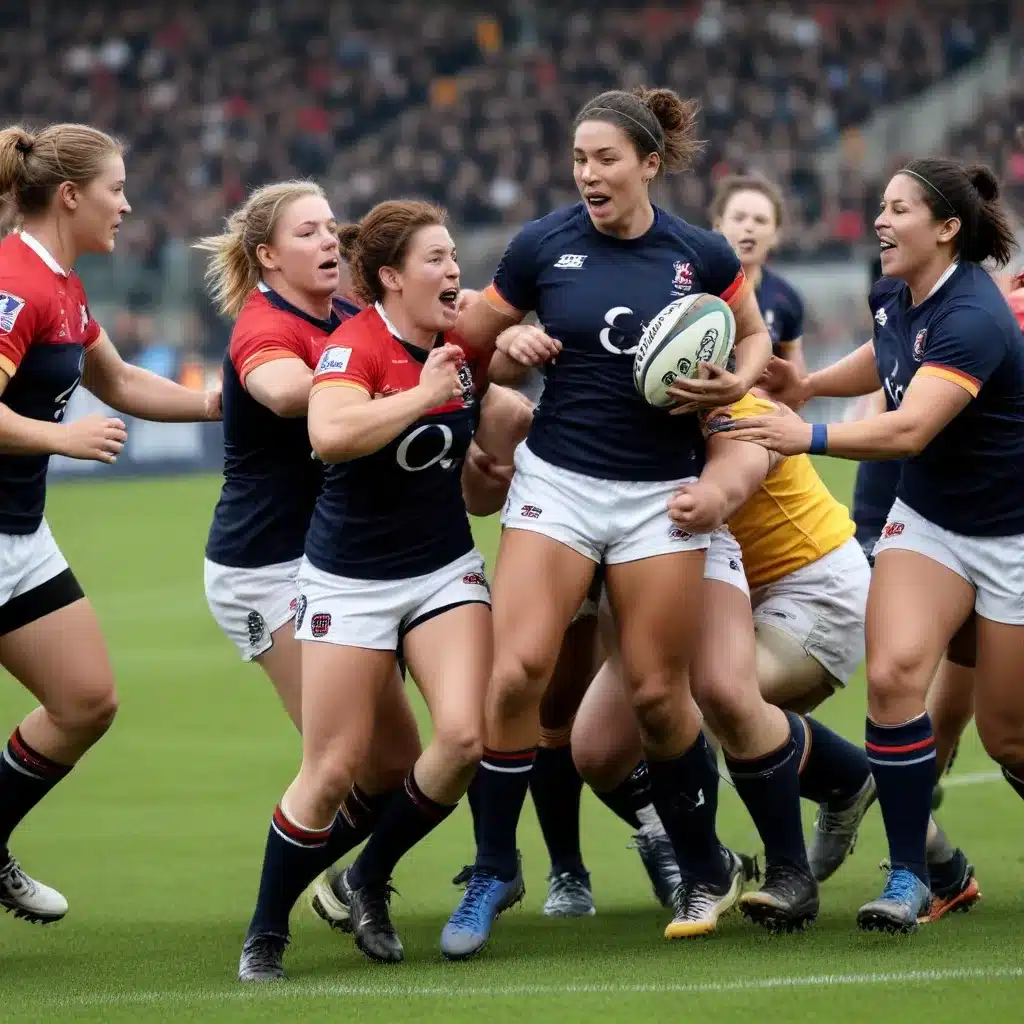
Diversity in Women’s Rugby
Women’s rugby has always been a beacon of diversity, bringing together players from all walks of life. From the grassroots to the international stage, the sport has fostered an environment that celebrates the richness of human experience. As we reflect on the journey of women’s rugby, it’s clear that the path towards true inclusivity has been paved with both challenges and triumphs.
One of the cornerstones of diversity in women’s rugby is gender representation. The sport has long championed the empowerment of female athletes, providing a platform for them to showcase their athleticism, skill, and leadership. However, the journey has not been without its obstacles. Societal perceptions and stereotypes have often cast doubt on the abilities of women in rugby, perpetuating the notion that the sport is primarily a male domain.
Overcoming these deep-rooted biases has required a concerted effort from players, coaches, and administrators alike. Through initiatives that highlight the incredible achievements of female rugby players, we are steadily dismantling these misconceptions and inspiring a new generation of young girls to pick up the ball and take the field.
Inclusivity of LGBTQ+ Athletes
Beyond gender representation, women’s rugby has also been at the forefront of embracing the LGBTQ+ community. The sport has long been recognized as a safe and inclusive space, where athletes can be their authentic selves without fear of discrimination or judgment. The visibility of LGBTQ+ players and coaches has had a profound impact, shattering stereotypes and creating a welcoming environment for individuals of all sexual orientations and gender identities.
Nonetheless, the road to full inclusivity for LGBTQ+ athletes has not been without its challenges. Some governing bodies have grappled with complex policy decisions, particularly regarding the participation of transgender players. While these discussions continue, it is crucial that we remain steadfast in our commitment to fostering an environment where everyone feels valued, respected, and celebrated.
Accessibility for Underrepresented Groups
Diversity in women’s rugby extends beyond gender and sexual orientation. The sport has also made strides in addressing accessibility and inclusion for underrepresented groups, such as individuals with disabilities, ethnic minorities, and those from socioeconomically disadvantaged backgrounds.
Grassroots initiatives that provide opportunities for these communities to engage with rugby have been instrumental in breaking down barriers and fostering a sense of belonging. By creating inclusive spaces and tailoring programs to address unique needs, we can ensure that the joy and empowerment of rugby is accessible to all.
Empowering Women through Rugby
Rugby has long been recognized as a powerful tool for empowering women. The sport not only fosters physical strength and resilience but also cultivates mental fortitude, leadership skills, and a deep sense of camaraderie. For many female players, the rugby pitch has become a sanctuary where they can break free from societal constraints and embrace their full potential.
Through the act of donning a jersey and stepping onto the field, women in rugby are redefining what it means to be a leader, an athlete, and a role model. The sport has provided a platform for women to challenge traditional gender norms, shatter glass ceilings, and inspire the next generation to reach for their dreams.
Grassroots Initiatives for Inclusive Rugby
At the heart of women’s rugby’s journey towards inclusivity lie the grassroots initiatives that have sprouted up around the world. From community-based recruitment programs to targeted outreach efforts, these local-level efforts have been instrumental in breaking down barriers and fostering a sense of belonging.
In many regions, rugby clubs have proactively engaged with underrepresented communities, offering entry points and support systems that make the sport more accessible. These initiatives not only introduce new players to the game but also create opportunities for mentorship, skill development, and leadership training.
Challenges and Barriers to Inclusive Rugby
Despite the remarkable progress made in fostering inclusivity within women’s rugby, there remain significant challenges and barriers that must be addressed. Societal perceptions and stereotypes continue to hinder the growth and representation of diverse players, with many still clinging to outdated notions of who can and should participate in the sport.
Furthermore, the lack of funding and resources allocated to women’s rugby, particularly at the grassroots level, has hindered the sustainability and expansion of inclusive programs. Without the necessary support and investment, marginalized communities may struggle to access the opportunities and infrastructure needed to thrive within the sport.
Advocating for Change: Voices of Women Rugby Players
At the forefront of the push for inclusive rugby are the voices and experiences of the players themselves. Women from diverse backgrounds have bravely shared their stories, shedding light on the challenges they have faced and the triumphs they have achieved.
These powerful narratives have been instrumental in raising awareness, challenging stereotypes, and inspiring meaningful change. By amplifying the diverse perspectives of women rugby players, we can create a deeper understanding of the realities they face and the crucial role they play in shaping the future of the sport.
Transforming the Rugby Landscape
As we look to the future, the commitment to embracing diversity and fostering inclusivity within women’s rugby has never been stronger. Governing bodies, clubs, and grassroots organizations have made bold strides in prioritizing representation, accessibility, and equity.
From increased visibility of female and LGBTQ+ role models to targeted recruitment and development programs, the rugby landscape is undergoing a transformative shift. By working collaboratively, we can ensure that the sport continues to be a space where individuals from all walks of life can feel empowered, celebrated, and united by their shared passion for the game.
The journey towards inclusivity in women’s rugby is far from over, but the progress made thus far is a testament to the resilience, determination, and unwavering spirit of the players, coaches, and advocates who have paved the way. As we continue to embrace diversity and champion the rights of all individuals, the future of women’s rugby shines brighter than ever before.
